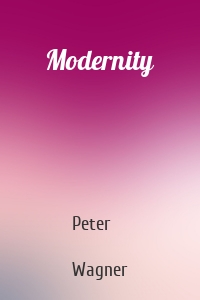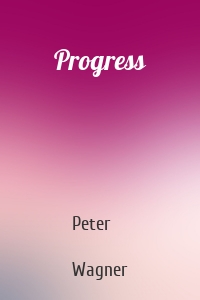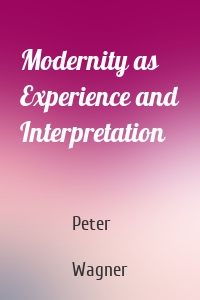Peter Wagner
3 кн.
Modernity
We live in a modern age, but what does ‘modern’ mean and how can a reflection on ‘modernity’ help us to understand the world today? These are the questions that Peter Wagner sets out to answer in this concise and accessible book. Wagner begins by returning to the question of modernity's Western origins and its claims to open up a new and better era in the history of humanity. Modernity's claims and expectations have become more prevalent and widely shared, but in the course of their realization...
| Автор | Peter Wagner |
Progress
The idea of progress guided human expectations and actions for over two centuries. From the Enlightenment onwards, it was widely believed that the condition of humankind could be radically improved. History had embarked on an unstoppable forward trajectory, realizing the promise of freedom and reason. The scientific revolution, the industrial revolution, and the French Revolution, in some views also the socialist revolution, were milestones on this march of progress. But since the late twentieth...
| Автор | Peter Wagner |
Modernity as Experience and Interpr...
We are all modern today. But modernity today is not what it used to be. Over the past few decades, modernity has been radically changed by globalization, individualization, new inequalities, and fundamentalism. A novel way of analysing contemporary societies is needed. This book proposes such an analysis. Every society seeks answers to certain basic questions: how to order life in common; how to satisfy human needs; how to establish knowledge. Sociology long assumed that the answers had been...
| Автор | Peter Wagner |




